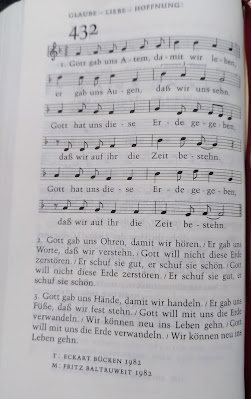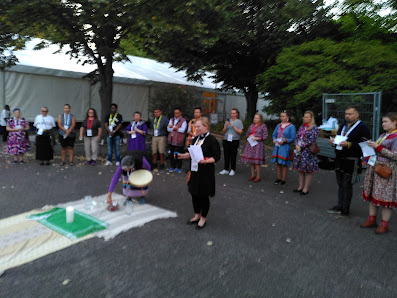The service
was held in German, and I was surprised that I could follow rather much, even the
sermon. The theme was about the gifts that God gives to us. This was also the theme
in Church of Sweden last Sunday, when I led the Eucharist service in
Vindhemskyrkan in Uppsala. Such a coincidence. Our choir – Fyris Kammarkör –
sang that Sunday, and the Choir Leader, Nils Pålbrant, asked me if I could
suggest a song. I looked in some books and found a German hymn, translated into
Swedish by the renown hymnwriter Per Harling. I had never seen the song before,
but I felt that the text was in line with the theme.
Today we sang exactly that hymn in the service. Isn’t that amazing? And I must say, that the preacher today said a few things that I also touched upon last Sunday. Especially that the gifts are given to the community and not to us as individuals. It is biblical, so I take it for granted that preachers should draw that conclusion. It is still reassuring to realise that we are in line with each other.
After a few planning sessions in preparation for the start of the preassembly I ended by taking part in a ceremony with the indigenous preassembly. We were approximately 60-70 people in a circle and the meaning of the ceremony was to acknowledge that the whole assembly takes place in a specific space. Led by representatives of different indigneous peoples from all over the globe, including sami people from my part of the world, we greeted soil, water, fire and wind. All was closed with the blessing. I felt privileged to be part of this. Now it feels good to rest and tomorrow I am prepared.













